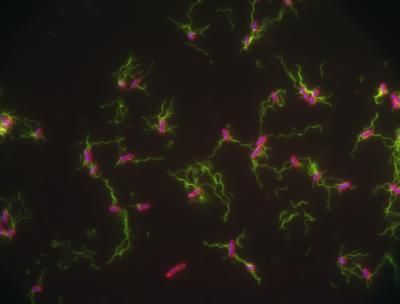A step toward minute factories that produce medicine inside the body
Advertisement
Scientists are reporting an advance toward treating disease with minute capsules containing not drugs — but the DNA and other biological machinery for making the drug. In an article in ACS' journal Nano Letters, they describe engineering micro- and nano-sized capsules that contain the genetically coded instructions, plus the read-out gear and assembly line for protein synthesis that can be switched on with an external signal.
Daniel Anderson and colleagues explain that development of nanoscale production units for protein-based drugs in the human body may provide a new approach for treating disease. These production units could be turned on when needed, producing medicines that cannot be taken orally or are toxic and would harm other parts of the body. Until now, researchers have only done this with live bacteria that were designed to make proteins at disease sites. But unlike bacterial systems, artificial ones are modular, and it is easier to modify them. That's why Anderson's group developed an artificial, remotely activated nanoparticle system containing DNA and the other "parts" necessary to make proteins, which are the workhorses of the human cell and are often used as drugs.
They describe the nanoscale production units, which are tiny spheres encapsulating protein-making machinery like that found in living cells. The resulting nanoparticles produced active proteins on demand when the researchers shined a laser light on them. The nanoparticles even worked when they were injected into mice, which are stand-ins for humans in the laboratory, producing proteins when a laser was shone onto the animals. This innovation "may find utility in the localized delivery of therapeutics," say the researchers.





















































